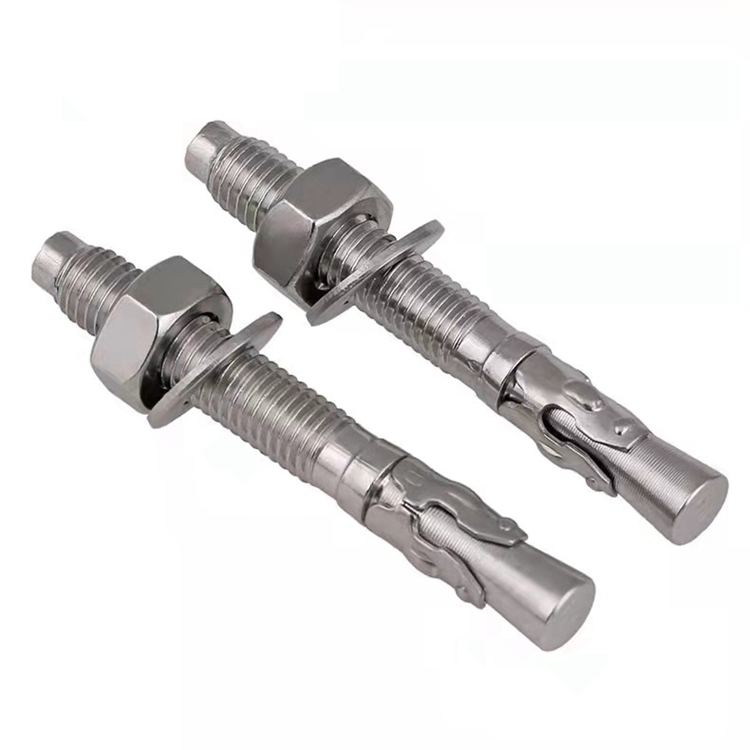hub assembly bolts companies
Oct . 22, 2024 08:59 Back to list
hub assembly bolts companies
The Role of Hub Assembly Bolts in Modern Manufacturing
In the realm of manufacturing and engineering, the significance of small components often goes overlooked. Among these critical elements, hub assembly bolts represent a vital link in various mechanical systems, particularly in the automotive, aerospace, and industrial sectors. As companies continue to innovate and optimize their production processes, understanding the role of hub assembly bolts becomes increasingly important.
Hub assembly bolts are primarily used to secure components within a hub assembly system, which is integral to the function of wheels, rotors, and turbines. These bolts provide the necessary strength and stability to ensure that the connected parts maintain their integrity under stress. With applications ranging from automotive wheel hubs to industrial machinery, the demand for high-quality hub assembly bolts has surged. This increase has prompted numerous companies to specialize in the manufacturing and supply of these essential components.
The Role of Hub Assembly Bolts in Modern Manufacturing
Technological advancements have also played a crucial role in shaping the hub assembly bolts market. Innovative manufacturing techniques, such as advanced machining and surface treatments, have emerged to enhance the performance and longevity of these bolts. For instance, coatings that provide corrosion resistance or friction-reducing properties can significantly boost the functionality of bolts, making them suitable for demanding applications.
hub assembly bolts companies

In addition to material and manufacturing advancements, companies are also exploring automation in the assembly process. Automated production lines can increase efficiency and reduce human error, resulting in a higher output of reliable hub assembly bolts. This shift towards automation is indicative of the broader trend in the manufacturing sector, where companies are striving for improved productivity and reduced operational costs.
Moreover, the global push for sustainable manufacturing practices has influenced the hub assembly bolts industry. Companies are increasingly focusing on eco-friendly materials and processes, understanding that sustainability not only appeals to environmentally conscious consumers but can also lead to cost savings through efficient material use and waste reduction.
Collaboration among manufacturers, suppliers, and industries is key to optimizing the hub assembly bolts supply chain. By working together, companies can ensure a consistent supply of high-quality bolts while streamlining the distribution process. Networking within industry associations and attending trade shows can provide valuable insights and foster partnerships that enhance innovation and competitiveness.
In conclusion, hub assembly bolts are more than just small fasteners; they are essential components that ensure the functionality and safety of various mechanical systems. As companies continue to innovate in materials, manufacturing techniques, and sustainable practices, the hub assembly bolts market is poised for growth. The ongoing focus on quality, efficiency, and collaboration will shape the future of this industry, making it an exciting area for both manufacturers and consumers alike. As technology evolves and industries adapt, the importance of hub assembly bolts will remain front and center in the world of engineering and manufacturing.
Latest news
-
High-Quality Panel Stud Bolt Reliable Panel Stud Bolt Factory & Suppliers
NewsJul.08,2025
-
High-Precision Fine Thread Locknuts Manufacturer & Supplier Custom Solutions
NewsJul.08,2025
-
PH Imperial Stud Bolt – High Strength Fasteners from Leading Supplier & Factory
NewsJul.07,2025
-
High-Quality Allen Wrench Bolts Leading Factory, Company & Suppliers
NewsJul.07,2025
-
Wholesale Ball Stud Bolt - High Quality Supplier & Factory Price Reliable Wholesale Ball Stud Bolt Company
NewsJul.06,2025
-
High-Strength Alloy Bolts Manufacturer & Supplier Quality Alloy Fasteners Factory
NewsJul.06,2025
